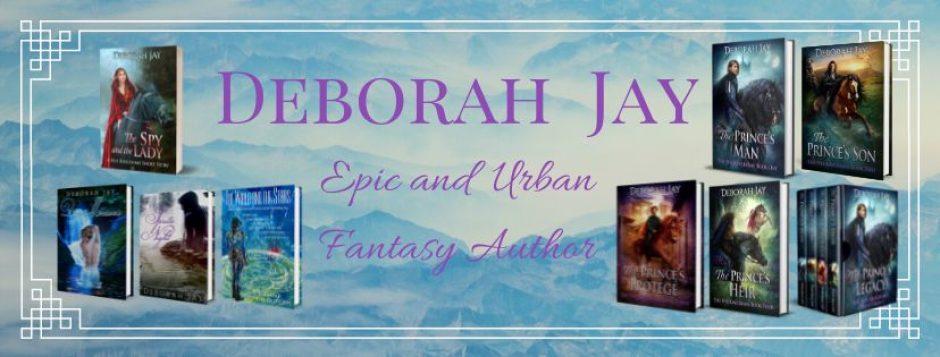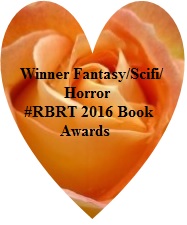Please forgive me; I’m going to have a rant.

Nothing infuriates me more in this frontier world of indie publishing, than the author who ends their book on a cliff hanger.
Scratch that. They don’t end it at all; they just stop writing, smack in the middle of the action, assuming that the reader will be fine and happy to go off and purchase the next in the series so you can find out what happens.
Or wait until the next book is written
Authors – this cheats the reader!
BOOK STRUCTURE
Perhaps I’m old fashioned, and there are rafts of readers out there who don’t mind investing several hours in reading a book only to discover that it has no resolution. Sorry, I’m not one. I like my books in the time-honoured style of beginning-middle-end.
Of course, if a book is part of a series, there are going to be dangling plot threads left to draw us on to the next novel, and if the author has properly plotted out the overall story arc for the trilogy or series, then that isn’t going to be wrapped up in a single book.
But please, give us some form of resolution to the central conflict of this book.
I’ve read a couple of great blogs recently on this subject: Wise Ink’s The Art of the Cliffhanger, which discusses how to use them in a fair manner, and Cliffhangers – a good idea or not? , where Jennifer Ellis breaks down the various types of cliffhanger into 4 categories, and goes on to argue that ‘there is a balance between providing enough closure and leaving some things hanging in both stand alone books and books in a series.’
As an author, I can agree with that. I was somewhat shocked when one review of my epic fantasy, THE PRINCE’S MAN accused it of having a cliffhanger ending. It doesn’t; it has dangling threads left that follow on in the next book, but the macro conflict of ‘will the coup succeed or not?’, and the character conflict of ‘will Rusty and Risada come to terms with each other before one of them ends up dead?’, are both fully resolved by the end.
I admit the sequel is proving trickier, but I do have an overall arc that will be closed, even if this time around a lot of threads will be left waving in the breeze; more par for the course in the middle part of a trilogy, I think.
Check reviews
When I’m book buying, after checking out the cover and blurb, the next thing I do is check the reviews to see if ‘cliffhanger ending’ is mentioned anywhere. If it is, I don’t purchase.
Unfortunately, when I sign up to review a book for a blog tour, many of the books are not yet released, so I don’t have that luxury. I do, however, now plan on asking the question of the tour company before signing up in future.
I’m writing this post on the back of finishing one such, in which there is not one single plot thread tied up at the end of it; it builds and builds, adding plot strands, motives and tension – and then just stops. That made me see red, especially as it is a debut novel, and I have no idea when the next will be out. Anyway, by then I will have forgotten the details of this one.
I will certainly try to be as impartial as possible with my review – the story is good and as so many writers are employing this strategy these days, I won’t be utterly damming it for just that one point. But to me, it’s a big point.
How about all you readers out there? How do you feel when an author leaves you high and dry?

























I am with you, Deborah.
I am a firm believer in ‘beginning, middle, and end’, storytelling.
I have read some books that start and end in the middle.
I read a series that started out as a stand alone, but each successive book had less and less satisfying conclusions. After six installments, there did not seem to be an end in sight.
I have a series, but each instalment is a themed, stand-alone adventure.
I am confident that you will write a wonderful review for this book, even if it did p!ss you off, Deborah.
Cheers!
Your pal,
~Icky.
LikeLike
Thanks Icky, and it’s good to hear you are with me on this subject. I never encountered a book ending on a cliffhanger before the Indie revolution (though I’m told they did exist), and having been through the trad route treadmill, I can’t imaging even contemplating writing a book that did not have a clear end.
I guess it’s a form of ‘serialisation’, but if that’s so, I wish they’d say before I invest my time in a frustrating experience.
LikeLike
Good article! I think the second book in a series can end with a cliffhanger, but definitely NOT the first. A series has to earn their following. If you leave me hanging at the end of your first book, I am likely to get angry about deliberately being maneuvered into buying a second book. Most of the time I “forget” to do just that, because I am rebellious.
LikeLike
That’s how I feel about it too, Connie. And I’m with you all the way – I refuse to buy the sequel, even if I liked the first, on principle.
LikeLike
I totally agree! When part of a series, a few open threads and lingering questions are great to keep readers coming back but there has to be a sense of closure.
No one should assume that readers will buy every book and so each one should be able to stand on its own and offer a complete story, even if not the full picture.
LikeLike
Exactly. If it doesn’t have a complete story, then I fail to see how you can sell it as a novel.
Call it a serialisation, and then I know what to expect.
LikeLiked by 1 person
BOO YAH!! I am soooo right there with you. Pull that on me and I am more than happy to NOT read your work (and if I am really cross about it – I will write one of my scathing reviews about what counts as ‘writing’ – as in ‘beginning, middle, and end’!)
Honestly, I find serials to be a cop out as well . . . I know some people like them, I find them more lazy than not. Ah, well!
LikeLike
Somehow, I’m not surprised to find you of this opinion too 😀
I find it weird that anyone is okay with investing time in any product only to discover it’s incomplete.
I have noticed in some discussions on Goodreads that there are readers saying they are fine with cliffhangers, but I have yet to meet one anywhere else.
Perhaps such books should carry a warning, displayed prominently in the description, and then we wouldn’t get suckered in and end up cheated/disappointed/angry.
LikeLiked by 1 person
Ha! You know me so well. And I agree, I have to tell you. I got reamed by someone the other day for complaining in my review when I was given a book by a promotion company to review. I mentioned the fact that it was not really a book, just a few chapters that were sold as a book . . . of course, that was only a part of my review – the rest was, basically, the writer “really” needed to accept the assistance of a good editor.. but that part was ignored over the comment about it not being a real book. . .
LikeLike
Some people just can’t take constructive criticism. But, hey ho, they are the ones who don’t improve as a result.
You keep on doing what you do so well 😉
LikeLiked by 1 person
Thanks sweetie! 🙂 I needed a positive word today… and you always come through!
LikeLiked by 1 person
[…] Please don’t leave me hanging… […]
LikeLike
Thanks for this rant – I could not agree more! These days before I buy a book from an unknown author I always check the reviews for any indication there’s a cliffhanger and the end and if there is, no matter how great the story sounds I pass on the book as well as the author. I have a Google+ page for “The Business of Being an Author” and I’m going to share your post with my followers.
LikeLiked by 1 person
Almost everyone I talk to seems to have the same opinion; I’m beginning to wonder where all the ‘don’t mind cliff hanger endings’ fans hang out – certainly not around here!
Thanks for sharing 🙂
LikeLike
Fab article Deb. Your point is made well and shared! I’d like to know how you handle reviews when you come across such incidents. Nobody likes to insult an author, yet they are asking for our opinions. Do you review and not mention the disturbing points, or do you tell them your honest feelings and don’t review? 🙂
LikeLike
Thanks Deb. You can see my review of the book that inspired this at: https://deborahjayauthor.com/2015/02/10/release-tour-review-cursed-by-fire-by-danielle-annett-paranormal-urbanfantasy/
If I feel I can give at least 3 stars, then I will review the book and make my critical points, hopefully in a way that can be taken as positive feedback (as it was in this case).
If I consider a book to be below that critical level, I will try approaching the author directly by email and ask if they’d like the feedback. So far, they have all said yes, although I’m sure that at some time I will get either a curt ‘no thanks’ or a mouthful!
LikeLiked by 1 person
Well, in all honesty Deb, I have read many posts on author’s takes on doing reviews and many do take an earful when being forthright. But I believe asking someone to beta read for the greater good of the book has to entail some unsavory finding occasionally. But as you said, if we are being positive with our reviews with no intent to hurt anyone, then I know as a writer, as much as it hurts, if it means I can better my weak spots I’d like to know. I know when I review books if I didn’t like things about it and found too many negatives, I just won’t review. I suppose the old adage, “do unto others” still resonates. I’d rather not have someone leave me a bad review publicly. 🙂
LikeLike
Yes, that’s how I look at it too.
As a writer who has worked with an experienced crit group for over 25 years, I’m well used to having the weak spots in my writing pointed up, but I’d sooner hear it from them, and produce a better book, than put out a less than good piece into the public domain.
Also, as a professional trainer/coach in my sporting field, it’s down to me to do the same for my clients, and the ones who are willing to listen, are the ones who improve and go win things!
It’s all about critiquing, not criticising.
LikeLiked by 1 person
Absolutely! 🙂
LikeLike
Reblogged this on So, I Read This Book Today and commented:
Love this article! I couldn’t agree more. ..
LikeLiked by 1 person
I agree with all the commenters who say that resolving a story is very important. However, it does lead to a problem that many critics have pointed out in my novels–the overly long epilogue. In fact, my latest novel has two epilogues–but nobody can say it isn’t resolved!
LikeLike
That’s an interesting position to be in – I find that I only need a small epilogue to wrap up after the climax – say, around 8 – 10 pages. And of course, I still leave some threads dangling to lead on to the next book. Perhaps I might need more epilogue if the books were not part of a series, but I’m not certain.
LikeLike
It is a pet peeve of mine too. This seems like cruel and unusual punishment after becoming involved in a story.
LikeLike
Love that as a description! Totally apt 😀
LikeLike
[…] (See my previous post on cliff hangers here) […]
LikeLike
[…] post, like my earlier rant about cliff hanger endings here, has been prompted by a book I really wanted to like, but just couldn’t. I took it on as part […]
LikeLike
[…] post, like my earlier rant about cliff hanger endings here, has been prompted by a book I really wanted to like, but just couldn’t. I took it on as part of […]
LikeLike
One, and I mean ONE, dangling question is fine. Anymore than that and I’m furious over wasting my time. Even in a series each must stand alone because readers often don’t read in order. I know I’ve started a series halfway through many times, and then went back to read the earlier books. Which I would have never done if the author left me hanging. Great subject! I’m with you 100%.
LikeLike
Seems to me there is a majority of people thinking the same as us, so why is it that so many authors are publishing books that have no ending? Very frustrating.
LikeLiked by 1 person
[…] have been around here for a while, advocating ending your book on a cliff hanger (see my post: Please don’t leave me hanging), but if you use this absorbed knowledge, that should eventually feel like instinct, to write […]
LikeLike
[…] https://deborahjayauthor.com/2015/02/02/please-dont-leave-me-hanging-authors-writers-cliffhangers/ […]
LikeLike
Belonged to a book club once, at the local library. When asked about my opinion of the chosen novel, I said, “What novel? This is a 300-page prologue! Obviously you are expected to cough up another twenty-five dollars (large paperback) for the next “installment”. If I’d paid for it instead of reading a library book, I’d have demanded my money back. Needless to say, I didn’t read the next “installment”, free or not. The really weird thing? (to me) I was the only one out of twelve people who thought it was reprehensible! Go figure.
LikeLike
Ooh, I am so with you on this. I just can’t understand why readers would put up with a ‘novel’ that has no ending. It’s such a cheap trick to get you a buy the next one. Any good writer can get readers coming back because they write fulfilling and COMPLETE novels, with an ending, and yet still leave a reader wanting more.
I have no patience or respect for writers who can only get people to buy their next book with a cheap trick like a cliff hanger. Grrr.
LikeLike